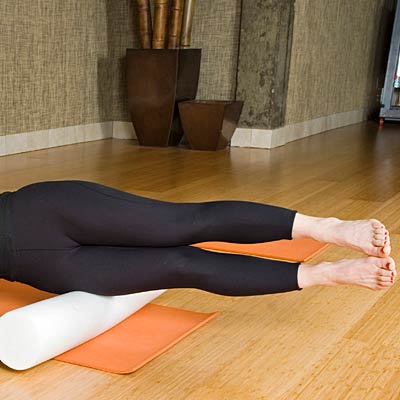
Secrets to better running
by Alyssa ShafferFrom Health magazine
Hang around serious runners enough and you'll pick up a few tidbits—how to pace yourself, which routes have the cleanest bathrooms, what to wear when the weather is changing more rapidly than a Twitter feed. We asked coaches, trainers, nutritionists and veteran runners to share their strategies. Steal them to run longer, feel lighter and stay injury-free.

Run every day
Consistency is key to a successful program. A daily run helps improve your body's ability to burn fat, along with your biomechanics. It also teaches your mind to blast through any challenge, whether it's physical or mental.—Andrew Kastor, a Mammoth Lakes, Calif., running coach who works with elite runners, including his wife, U.S. Olympian Deena Kastor

Give yourself a reason
I started as a Team in Training charity runner, having lost loved ones to cancer. When I'm struggling with my training plans, I remember those who are still fighting their battles, those who have survived in part because of the money raised and those who have been taken from us.—Kelly Flynn, running coach for Team in Training in Boston

Invest in comfort
Get a good sports bra or you'll feel it with every step. Body Glide balm and socks, too. Nothing kills a run like a blister about to pop.—Alison Feller, blogger at aliontherunblog.com

Stay positive
Finish runs feeling strong and happy, not worn-out. It'll keep you coming back for more and help you reduce injury risk.—Jenny Hadfield, a running coach in Chicago, coachjenny.com

Find your sweet spot
Write down your workouts, then color-code how they made you feel: yellow for amazing, orange for just OK and red for total crap. It's a visual way of seeing how your body responds and will help you pick up patterns. For example, if you're always orange or red around your period, that's a sign that you should be doing lighter workouts on those days.—Jenny Hadfield

Get lithe
Use a foam roller three times a week to improve flexibility—it helps reduce injury better than static stretching.—Jordan Metzl, MD, sports medicine physician at the Hospital for Special Surgery in New York City and author of The Exercise Cure

Layer less
Always dress to run like it's 10 to 15 degrees warmer than it is. As soon as you get out there and get moving, you'll warm up and be glad you didn't put on so many layers.—Kara Goucher, U.S. Olympic marathoner

Put off partying
Steer clear of happy hour the day or two before a race or big training session. Alcohol significantly impairs sleep quality and hydration levels, as well as recovery.—Elizabeth Waterstraat, triathlete coach at Multisports Mastery in Chicago

Train smart
In order to get stronger, your body needs time to rebuild. Mix easy days with tough, and avoid pushing when your body needs a break.—Eric Barron, coach of Track Club LA

Forget the speedsters
Compare yourself with yourself. There will always be someone faster and leaner and who looks more like a runner than you do. Focus on the improvements you want to make for yourself.—Chris Heuisler, a running coach in Boston and the RunWestin concierge

Down a cup of coffee
For seasoned runners, having caffeine before running has been shown to make workouts seem easier—and help the body burn calories more efficiently. Aim for about 3 milligrams of caffeine per kilogram of body weight: For a 150-pound woman, that's about the amount in a 16-ounce coffee.—Marni Sumbal, RD, a certified triathlon coach and sports nutritionist in Greenville, S.C.

Mind that incline
Never accelerate down a hill. The breaking forces on your body can destroy your knees.—David Siik, creator of the Precision Running program for Equinox Fitness

Be a social runner
Running can be such a solitary pursuit, but there is a real benefit to making a connection with others—and no better way to do that than by running together. Websites like meetup.com can help you find local groups. Or you can just stop in at your local running store and ask."—John Heuisler, triathlete coach at Between the Lines in Baltimore

Talk to others about running
Tell people your goal. Post it on Facebook, Instagram and Twitter. Call your mama. Putting yourself on blast keeps you accountable.—Robin Arzon, a running coach in N.Y.C. and founder of Undo-Ordinary running group

Just race already
Set a goal to complete a longer race (13.1 miles, 26.2). The crossing of the finish will change your life!—Jeff Galloway, author of more than 20 books on running, including Running Until You're 100
